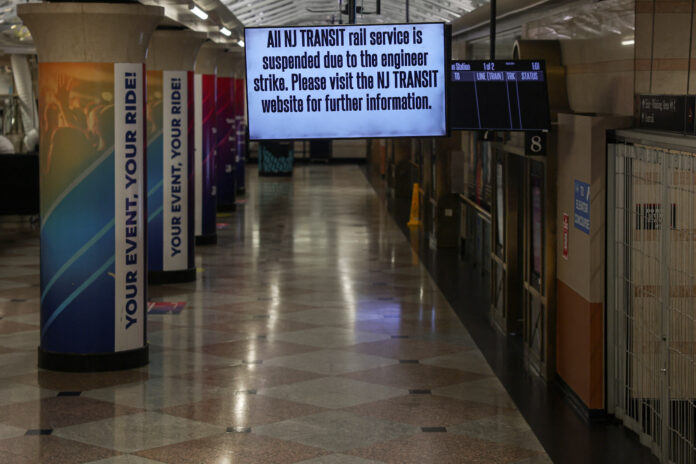On May 18, 2025, New Jersey Transit (NJ Transit) and the Brotherhood of Locomotive Engineers and Trainmen (BLET) reached a tentative agreement, bringing an end to a three-day rail strike that had disrupted services for approximately 350,000 commuters across New Jersey and New York City. This strike, the first of its kind in over four decades, had significant financial implications for both the state and its residents.
Financial Implications of the Strike
The strike highlighted the financial challenges faced by NJ Transit in balancing fair compensation for its employees with the need to maintain affordable and reliable services for commuters. The BLET had initially demanded a wage increase that would have cost NJ Transit an additional $684 million over the next five years. To meet these demands, NJ Transit would have been forced to consider fare hikes of up to 17% and an increase in the Corporate Transit Fee by 27%, potentially leading to a “death spiral” of fare hikes and service cuts.
The tentative agreement reached includes a wage increase that exceeds the previously rejected proposal, ensuring that engineers receive competitive compensation without imposing undue financial burdens on taxpayers and commuters.
Economic Impact on New Jersey
The strike had far-reaching economic consequences, affecting various sectors and communities. With rail services suspended, commuters were forced to seek alternative transportation options, leading to increased demand for buses, ferries, and private vehicles. However, NJ Transit’s contingency plans, including expanded bus services and shared Park & Ride options, could only accommodate a fraction of the displaced riders, leading to overcrowding and traffic congestion.
Businesses, particularly those relying on timely deliveries and employee attendance, faced disruptions that could have led to decreased productivity and financial losses. The potential for increased operational costs due to higher transportation fees and the risk of diminished consumer spending further underscored the economic stakes of the labor dispute.
Broader Implications for Public Transportation
The resolution of the strike underscores the importance of addressing labor concerns proactively to prevent service disruptions that can have widespread economic repercussions. It also highlights the need for sustainable funding models for public transportation systems, ensuring that they can meet the needs of both employees and commuters without compromising financial stability.
As New Jersey moves forward, the lessons learned from this strike may inform future labor negotiations and public transit policies, aiming to balance fair labor practices with the economic realities of maintaining a robust and reliable transportation infrastructure.
For more information on travel planning and updates related to public transportation in New Jersey, visit Explore New Jersey’s Travel Planning.












